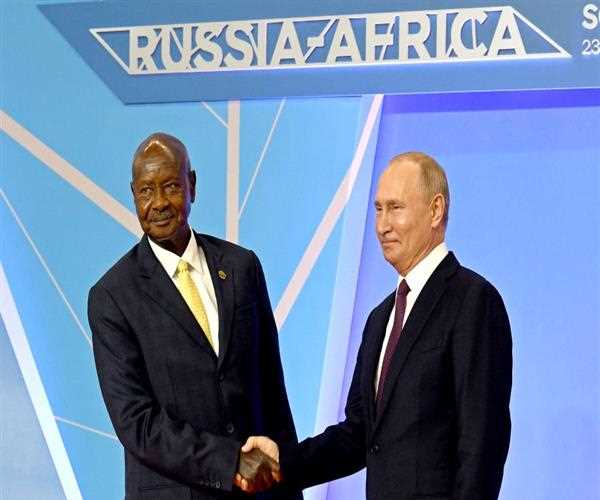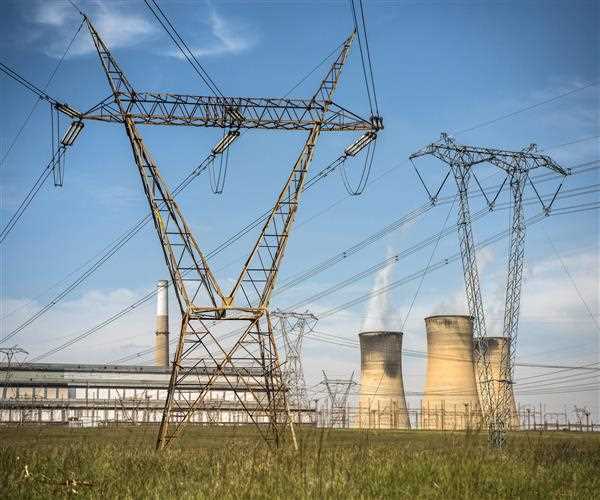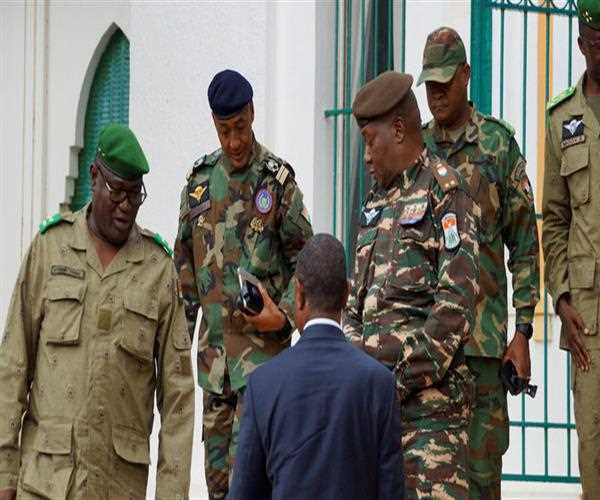
04-Aug-2023 , Updated on 8/4/2023 4:49:52 AM
How Russia is growing it's cooperation with Africa
Key Highlights
- Strategic Partnerships- Russia's engagement with Africa has been steadily growing, marked by a series of strategic partnerships and diplomatic initiatives.
- Economic Ties- Russia has been actively pursuing economic ties with African nations through trade agreements, investment projects, and the establishment of joint economic commissions.
- Natural Resources- Russia's interest in Africa's vast natural resources, including minerals, oil, and gas, has led to increased collaboration in the energy and mining sectors.
- Arms Trade- Russia has been a significant player in the African arms trade, supplying military equipment and weapons to various African countries.
- Nuclear Cooperation- Russia has been involved in nuclear energy cooperation with African nations, offering assistance in building nuclear power plants and providing nuclear technology.
- Diplomatic Outreach- Russian officials have engaged in high-level diplomatic visits to African countries, signaling a commitment to strengthening political and diplomatic ties.
Russia has been steadily increasing its cooperation with Africa in recent years. This is due to a number of factors, including Africa's growing economic potential, Russia's need for new markets, and the two sides' shared interests in security and counterterrorism.
Economic Cooperation
Africa is one of the world's fastest-growing regions, and Russia is keen to tap into this growth. In 2021, trade between Russia and Africa reached $20 billion, and both sides are looking to increase this figure.
Russia is particularly interested in investing in Africa's natural resources, such as oil, gas, and minerals. It is also providing technical assistance to African countries in a number of areas, such as agriculture, infrastructure , and healthcare.
Economic Engagement- Energy, Resources, and Infrastructure
One of the key areas of Russia's cooperation with Africa lies in energy and natural resources. Russia's state-owned companies, such as Rosatom and Gazprom, have been actively involved in energy projects across the continent.
For instance, Rosatom has engaged in nuclear energy cooperation with several African countries, offering expertise and technology for the construction of nuclear power plants . This cooperation aims to address Africa's growing energy demands while promoting a low-carbon energy mix.

Furthermore, Russia has sought to leverage its expertise in the extractive industries to forge economic partnerships. Russian companies have invested in mining operations, including diamond extraction in Zimbabwe and oil exploration in Sudan.
These ventures contribute to local economies and infrastructure development, albeit amid concerns about environmental and labor standards.
Diplomatic Initiatives- Soft Power and Multilateral Engagement
Russia's diplomatic outreach in Africa extends beyond economic interests. Moscow has been keen on strengthening its political ties through diplomatic initiatives and bilateral agreements.
The Russia-Africa Summit and Economic Forum held in 2019 in Sochi marked a significant milestone in this regard. The summit brought together African leaders and Russian officials to discuss a wide range of issues, from trade and investment to security cooperation.
Russia has also engaged with regional organizations like the African Union (AU) to enhance its influence. While the AU acknowledges the potential benefits of collaboration, there remain questions about the alignment of Russia's interests with the AU's development and governance objectives.
Security Cooperation
Russia and Africa share a number of security challenges, including terrorism, piracy, and illegal migration.
In recent years, Russia has stepped up its security cooperation with African countries, providing military training, equipment, and intelligence. It has also been involved in peacekeeping operations in a number of African countries, including the Central African Republic and South Sudan.

Political Cooperation
Russia and Africa also have a number of shared political interests. Both sides are opposed to Western intervention in Africa, and they are both interested in strengthening their own regional influence.
Russia has been providing political support to African countries that are challenging Western dominance, such as Sudan and Zimbabwe.
The Future of Russian-African Cooperation
Russian-African cooperation is likely to continue to grow in the years to come. Africa's economic potential is enormous, and Russia is well-positioned to benefit from this growth. The two sides also share a number of security challenges, and they are likely to continue to cooperate in this area.
In addition to the economic and security factors mentioned above, there are a number of other reasons why Russia is interested in expanding its cooperation with Africa. These include-
- Africa's growing population, which is expected to reach 2.5 billion by 2050.
- Africa's strategic location, which gives it access to key shipping lanes and resources.
- Africa's diverse cultures and languages, which offer Russia the opportunity to expand its soft power.
Challenges to Russian-African Cooperation
While there are many reasons to be optimistic about the future of Russian-African cooperation, there are also some challenges that need to be addressed. These include-
- The legacy of colonialism, which has left a legacy of distrust between Russia and some African countries.
- The lack of transparency in some Russian deals with African countries.
- The potential for Russia to use its influence in Africa to advance its own interests at the expense of African countries.
- Despite these challenges, there is a strong foundation for Russian-African cooperation. Both sides have a shared interest in promoting economic growth , security, and stability in Africa.
As long as these interests are kept in mind, Russian-African cooperation is likely to continue to grow in the years to come.
Russia is growing its cooperation with Africa in a number of areas, including trade, security, and politics. This cooperation is driven by a number of factors, including Africa's growing economic potential, Russia's need for new markets, and the two sides' shared interests in security and counterterrorism. While there are some challenges to Russian-African cooperation, the foundation for this cooperation is strong. As long as these challenges are addressed, Russian-African cooperation is likely to continue to grow in the years to come. Russia's growing cooperation with Africa reflects a broader trend of emerging and established powers seeking to expand their influence on the continent. As Russia deepens its engagement, it must navigate a complex landscape.

SEO and Content Writer
I am Drishan vig. I used to write blogs, articles, and stories in a way that entices the audience. I assure you that consistency, style, and tone must be met while writing the content. Working with the clients like bfc, varthana, ITC hotels, indusind, mumpa, mollydolly etc. has made me realized that writing content is not enough but doing seo is the first thing for it.
Join Our Newsletter
Subscribe to our newsletter to receive emails about new views posts, releases and updates.
Copyright 2010 - 2026 MindStick Software Pvt. Ltd. All Rights Reserved Privacy Policy | Terms & Conditions | Cookie Policy